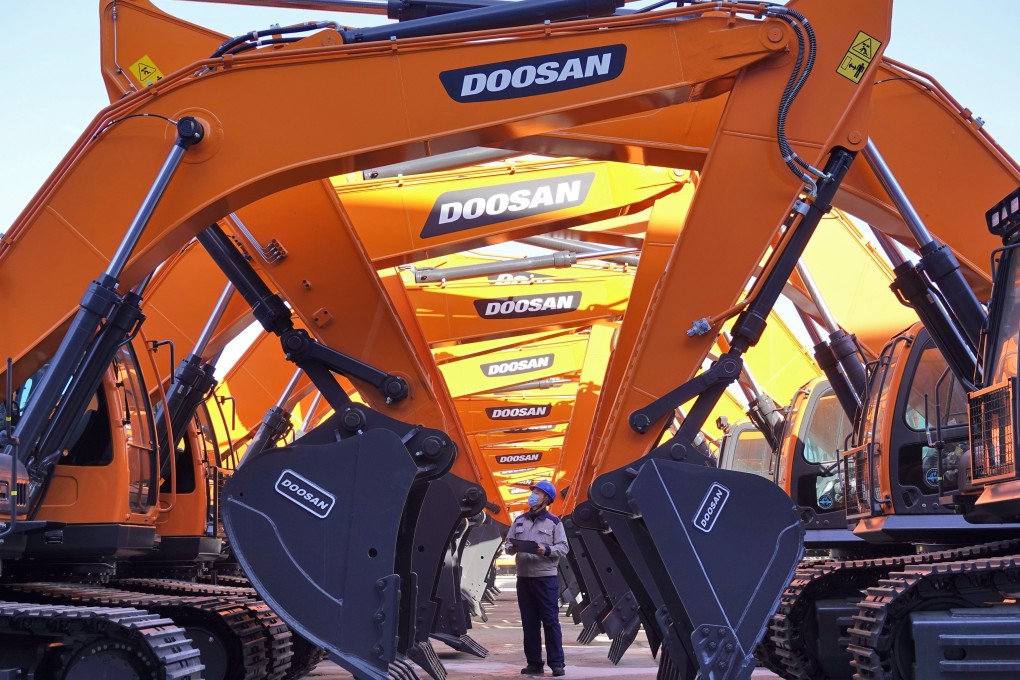Advertisement
China’s manufacturing activity stalls in January as economic headwinds mount
- China’s official manufacturing purchasing managers’ index (PMI) fell to 50.1 in January, down from 50.3 in December
- The official non-manufacturing PMI, which measures business sentiment in the services and construction sectors, fell to 51.1 from 52.7 in December
2-MIN READ2-MIN
24

Expansion of China’s factory activities slowed in January amid repeated Covid-19 outbreaks and the seasonal disruption to production ahead of the Lunar New Year, data released on Sunday showed.
The official manufacturing purchasing managers’ index (PMI) fell to 50.1 in January, from 50.3 in December, data from the National Bureau of Statistics showed.
The figure was slightly above the median forecast of a Bloomberg survey of analysts, which had predicted a slight fall to 50.0. A reading above 50 indicates production expansion while a reading below indicates contraction.
Advertisement
Within the official manufacturing PMI, a subindex for production in January fell to 50.9, down from 51.4 in December, while a subindex for new orders came in at 49.3, down from 49.7 in December.
New export orders, meanwhile, rose to 48.4 compared with 48.1 a month earlier.
Advertisement
Advertisement
Select Voice
Select Speed
1.00x